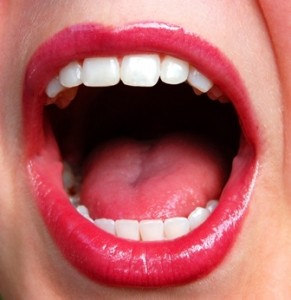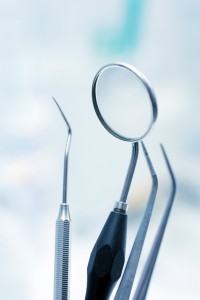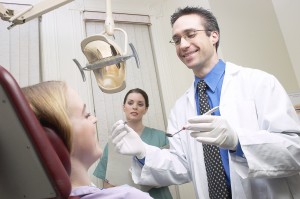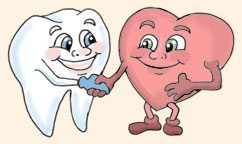 When you think about oral health, you probably think about your gums and your teeth. After all, Americans spend about $1.8 billion on toothpaste and $775 million on toothbrushes. We’re serious about our oral hygiene habits! (And it appears we put our money where our mouths are, too!)
When you think about oral health, you probably think about your gums and your teeth. After all, Americans spend about $1.8 billion on toothpaste and $775 million on toothbrushes. We’re serious about our oral hygiene habits! (And it appears we put our money where our mouths are, too!)
So, when you consider your dental wellbeing, do you think about … saliva? Most people don’t think about the role saliva plays into dental care, and how important it is for maintaining excellent oral health. It’s true! Saliva is a necessary component in preventing cavities. It clears away bacteria that cling to your gums and enamel and cause disease and infection.
Saliva is produced by … wait for it … your salivary glands, and it’s made up of 99.5% water. Big surprise, right? So, what’s the other .5%? Believe it or not, that teeny tiny part of saliva is comprise of several components, including electrolytes, mucus, glycoproteins, enzymes, and antibacterial compounds. Now, you know why saliva is the first step in the digestion process! It helps lubricate your food, making it easier to chew and swallow. Saliva also enhances your taste, not to mention your motor functions, which helps you to talk. Continue reading Saliva’s Role in Oral Health
 Every year, dentists all across the country hear complaints from their patients about tooth sensitivity. As a common oral health problem, tooth sensitivity is caused when the gums recede, exposing tooth roots. When hot or cold stimuli come into contact with these roots, a sensation is passed through the tubules in the roots directly to the nerve of the tooth, creating pain.
Every year, dentists all across the country hear complaints from their patients about tooth sensitivity. As a common oral health problem, tooth sensitivity is caused when the gums recede, exposing tooth roots. When hot or cold stimuli come into contact with these roots, a sensation is passed through the tubules in the roots directly to the nerve of the tooth, creating pain. what is plaque? Why is it so bad for your teeth? And how can you get rid of it?
what is plaque? Why is it so bad for your teeth? And how can you get rid of it? Have you noticed friends or co-workers stand further away than necessary to talk to you? Do you receive daily offers of gum and mints? Does your dog run away when you bend down and say hello? If the answer is yes to any of these questions … you probably have bad breath, also called halitosis.
Have you noticed friends or co-workers stand further away than necessary to talk to you? Do you receive daily offers of gum and mints? Does your dog run away when you bend down and say hello? If the answer is yes to any of these questions … you probably have bad breath, also called halitosis. For many patients, dental anxiety is a very real issue. Every year, it keeps many people from seeking the important care their smiles needs. But the good news is that dental anxiety can be overcome. In some cases, your dentist may offer soothing options to help ease your fears. But if not, here are some tips you can follow yourself to ease your own stress.
For many patients, dental anxiety is a very real issue. Every year, it keeps many people from seeking the important care their smiles needs. But the good news is that dental anxiety can be overcome. In some cases, your dentist may offer soothing options to help ease your fears. But if not, here are some tips you can follow yourself to ease your own stress. High blood pressure, also called HBP or hypertension, can affect your ability to receive oral healthcare. Performing dental treatments on patients with hypertension can be detrimental! If your blood pressure is too high, many dentists won’t schedule procedures until you receive a health assessment from your medical doctor.
High blood pressure, also called HBP or hypertension, can affect your ability to receive oral healthcare. Performing dental treatments on patients with hypertension can be detrimental! If your blood pressure is too high, many dentists won’t schedule procedures until you receive a health assessment from your medical doctor. No matter your age, your profession, or how busy your schedule might be, finding a good dentist is one of the most important things you can do. It can also be a struggle. So, how can you get started? What should you keep in mind as you look for a dentist for yourself and your family? Here are five things to consider.
No matter your age, your profession, or how busy your schedule might be, finding a good dentist is one of the most important things you can do. It can also be a struggle. So, how can you get started? What should you keep in mind as you look for a dentist for yourself and your family? Here are five things to consider. cancer, and testicular cancer put together. But the more you learn about oral cancer and its signs and symptoms, the better able you’ll be to get an early diagnosis and more effective treatment should oral cancer happen to you. Oral cancer responds very well to treatment in the earliest stages.
cancer, and testicular cancer put together. But the more you learn about oral cancer and its signs and symptoms, the better able you’ll be to get an early diagnosis and more effective treatment should oral cancer happen to you. Oral cancer responds very well to treatment in the earliest stages. Nearly 80% of American adults suffer from gum disease! Gum disease can devastate your oral health, causing serious dental problems. In fact, the number one reason for adult tooth loss in the United States is untreated gum disease. Worse, though, is the effect that gum disease can have on your heart health.
Nearly 80% of American adults suffer from gum disease! Gum disease can devastate your oral health, causing serious dental problems. In fact, the number one reason for adult tooth loss in the United States is untreated gum disease. Worse, though, is the effect that gum disease can have on your heart health. You already know how important brushing and flossing are for the health of your smile. But did you also know that certain foods can benefit your oral health too? Any number of specific foods can be beneficial, but today we’re targeting just a few general foods or drinks that can help you.
You already know how important brushing and flossing are for the health of your smile. But did you also know that certain foods can benefit your oral health too? Any number of specific foods can be beneficial, but today we’re targeting just a few general foods or drinks that can help you.